Discover the Life of a RSPB Warden at Coquet Island
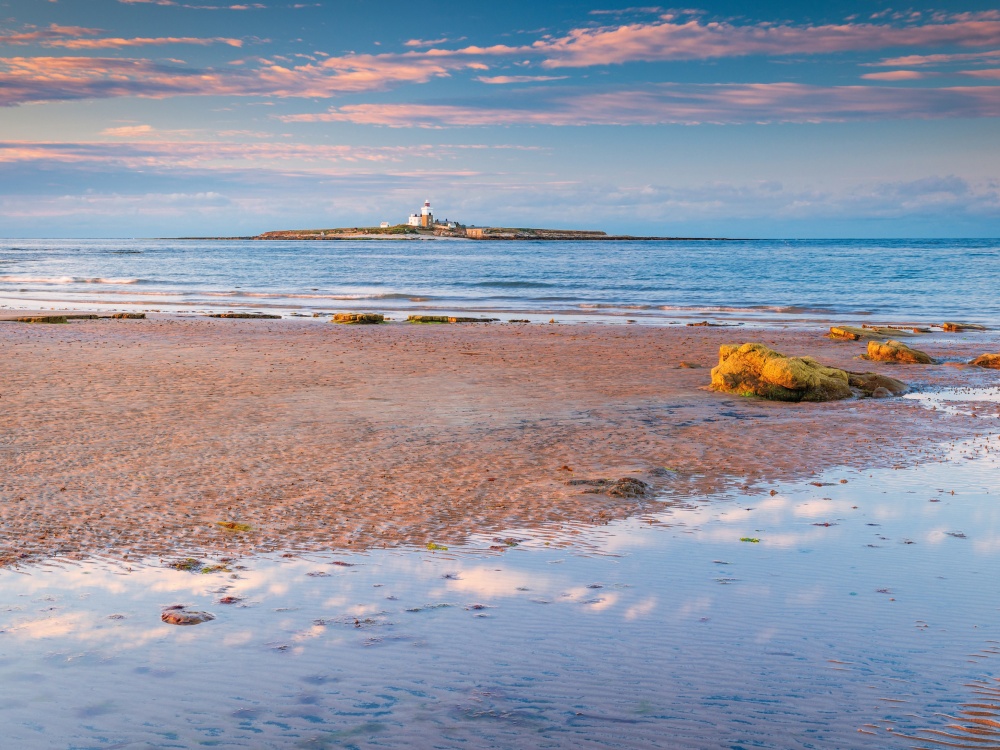
We discover a day in the life of a warden at one of the North East's most remote nature reserves, Coquet Island
Originally a monastic retreat in the seventh century (and inhabited by the hermit St Henry in the 12th century, who was rumoured to have fled an arranged marriage), the lighthouse here dates back to 1841 and the island was home to many lighthouse families before the lights were switched to solar power. One of the first lighthouse keepers on the island was none other than William Darling, older brother of local heroine Grace Darling.
These days, Coquet Island is home to thousands upon thousands of breeding seabirds (around 45,000 in total) and at present where you’ll find the only UK breeding colony of roseate terns. A dedicated wildlife sanctuary, Coquet Island is also a safe hauling out spot for seals, and the perfect overnight resting spot for hundreds of waders including redshank, turnstone, knot and curlew. Watching over them all tirelessly is Rebekah and the team.
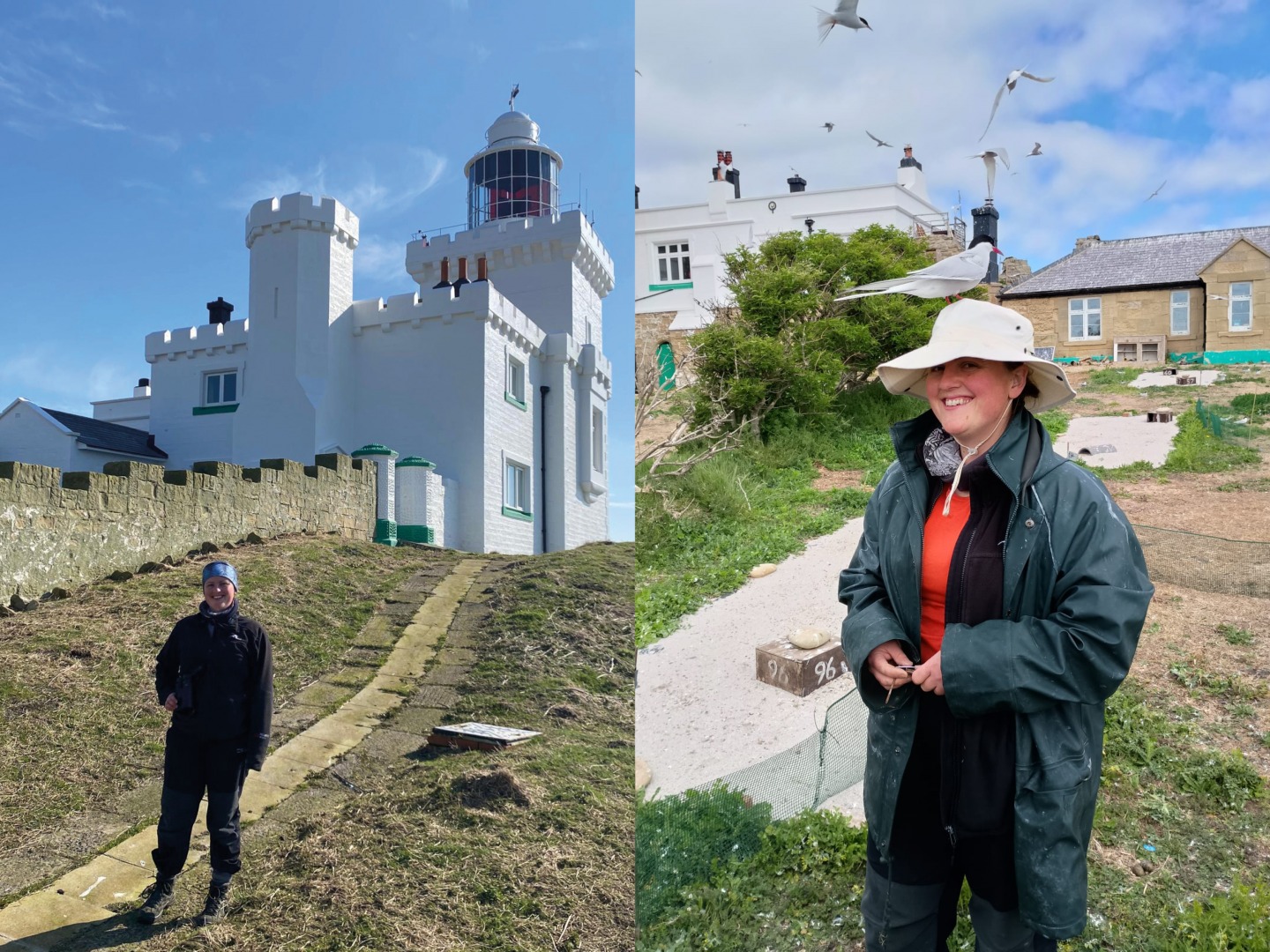
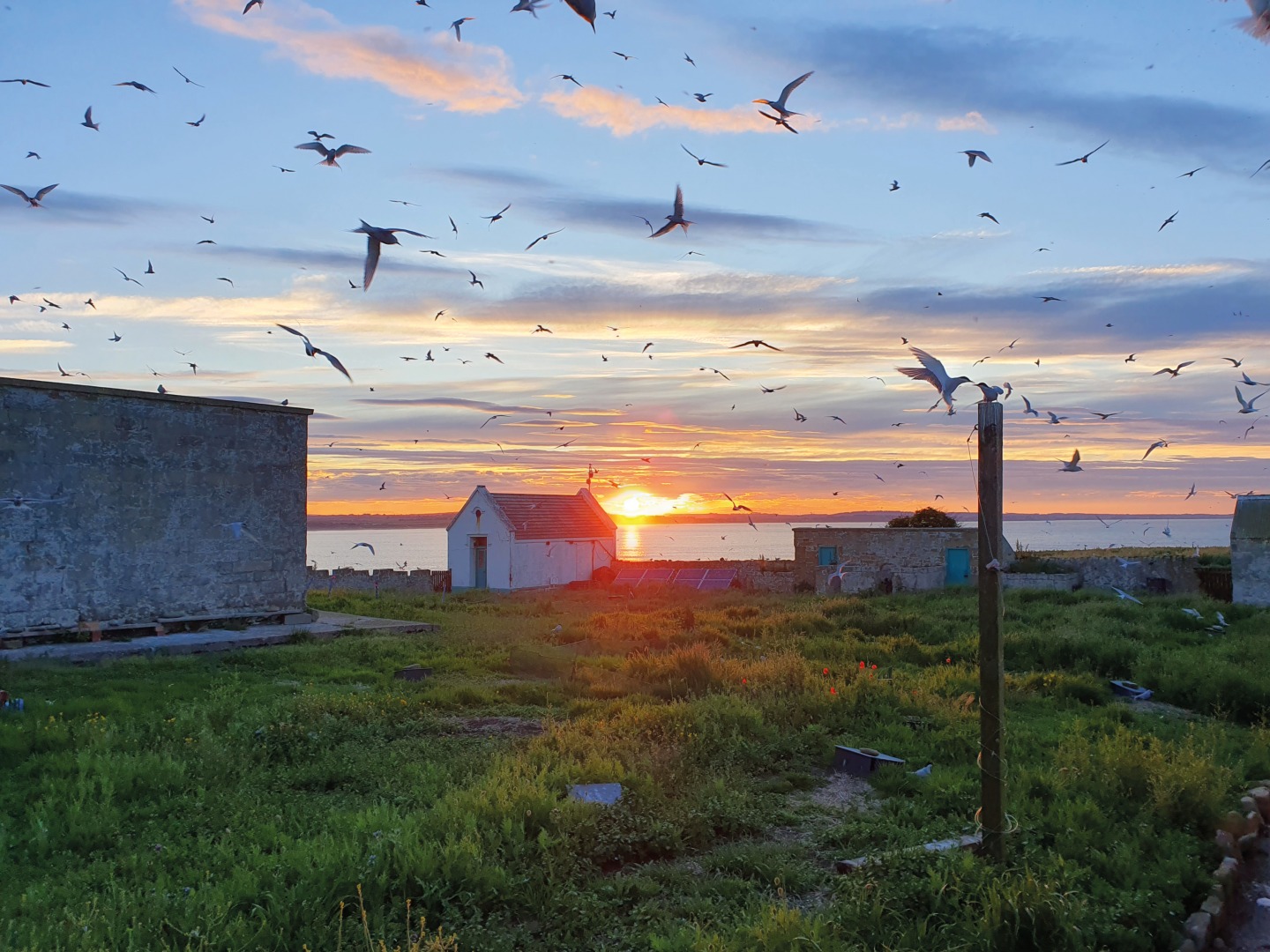
‘Having grown up near the sea I’ve always been fascinated by the ocean and the wildlife that inhabits it,’ says Rebekah. ‘I started working in conservation with seabirds back in 2017 on the Farne Islands, and whilst there I heard about RSPB Coquet Island and the incredible wildlife that was here. Since 2019 I have worked with the RSPB on various conservation projects, but it was after returning from Gough Island in 2022 that I saw the job opening for the warden of RSPB Coquet Island and took this as an opportunity to return to Northumberland and to work with terns and other incredible seabirds once again.’
Monitoring the island is no small feat, and though it may only be pint-sized (around six hectares in total) there is no end to the work. ‘It’s small enough that if you were to walk around it without stopping it would only take about 10 minutes, but in reality, it takes longer as there is always something to stop and look at,’ Rebekah says. ‘Whether it’s a wader out on the rocks or a fascinating moth flying around. The island is low-lying and covered in a mixture of long grasses, nettles and sea campion, which is a beautiful white-flowering coastal plant often found on offshore islands.
‘Most famously [the island] is known for having the UK’s only colony of breeding roseate terns, but we also have some of the largest colonies of breeding common, arctic and sandwich terns here. In fact, there are more birds beneath our feet here than above us in the sky.’
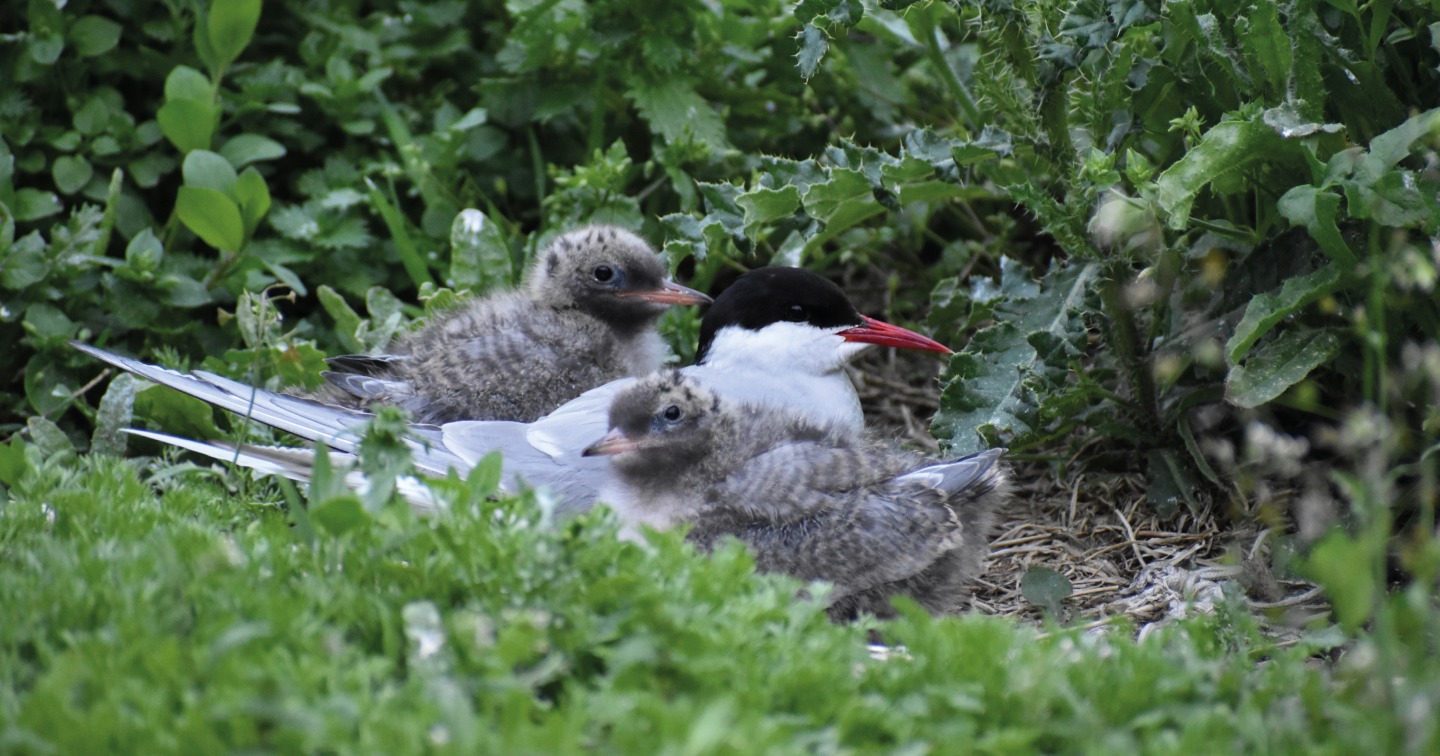
During the height of the breeding season, which runs from April to August, Rebekah and three colleagues live on the island full time, with a less intense schedule for the rest of the year. ‘We do get two days off the island each week for our days off and to allow us to wash our clothes and eat whatever food we have been craving all week!’ she says. ‘The rest of the year we only stay out here if the weather is nice. We mainly make a day trip, bringing out some of our wonderful local volunteers who help us out with the many tasks that need to be done.’
Getting to and from the island can prove tricky, depending on the weather. ‘Access to the island is by our newly acquired RIB; an amphibious boat that has wheels as well as a normal boat engine. I’ve been driving boats since I was young and this is the first time that I’ve ever driven a boat that has wheels, which I can just drive up out of the water. Our main limitation in terms of getting to the island is the weather as we’re unable to go out in rough conditions. This past winter we had to contend with quite a few strong winds!’
A day in the life is never dull. ‘One of the great things about this job is that no two days are the same, and our tasks fall into different jobs depending on the season. During the bird season we are focused on bird monitoring and undertaking bird counts. This can involve tasks such as ring reading and bird ringing – it’s when the majority of our data collection happens,’ Rebekah explains. ‘Outside the bird season, while we still undertake some wildlife monitoring such as the monthly WEBs (Wetland Bird Surveys) counts, we are more focused on manual, practical tasks such as habitat management and repairs, along with data analysis and report-writing. A recent Saturday here involved me waking at 8am and going to have a cup of tea and breakfast with my colleagues whilst hearing about what they had seen on their morning sea-watch.’
The work is non-stop while the weather is good. ‘After breakfast we completed the first of our fulmar census counts. This involves walking around on the rocks at low tide, looking for fulmars hidden in the low grassy cliffs. Some of them are quite well hidden in the hollow and you can only see a beak or dark eye peeking out at you,’ she explains. ‘After a brief break and lunch, some RSPB staff and volunteers came out to help us with our roseate tern productivity monitoring. The “Rosies” as we like to affectionately call them, breed in the boxes on two artificially made terraces on the west side of the island. We check through the boxes, recording the contents if we find eggs or chicks and the growth stage that the chicks may be at.
‘The most important job that we have to do is data entry, and it is best to do it as soon as possible to ensure that it is accurate and isn’t accidentally lost. After all this, it is time for a communal dinner and washing up and cleaning. After which, if there isn’t anything else pressing to do, we have the chance to relax!’
Peace at last for Rebekah and the team, and whilst they may not be staying in the Ritz, the accommodation has its charms. ‘The accommodation out here is basic but cosy and some of the best island accommodation that I have had! We live in half of the lighthouse and the old lighthouse keeper’s cottage, most of which was originally built in the 1800s, with some parts dating back to the 12th century,’ she explains.
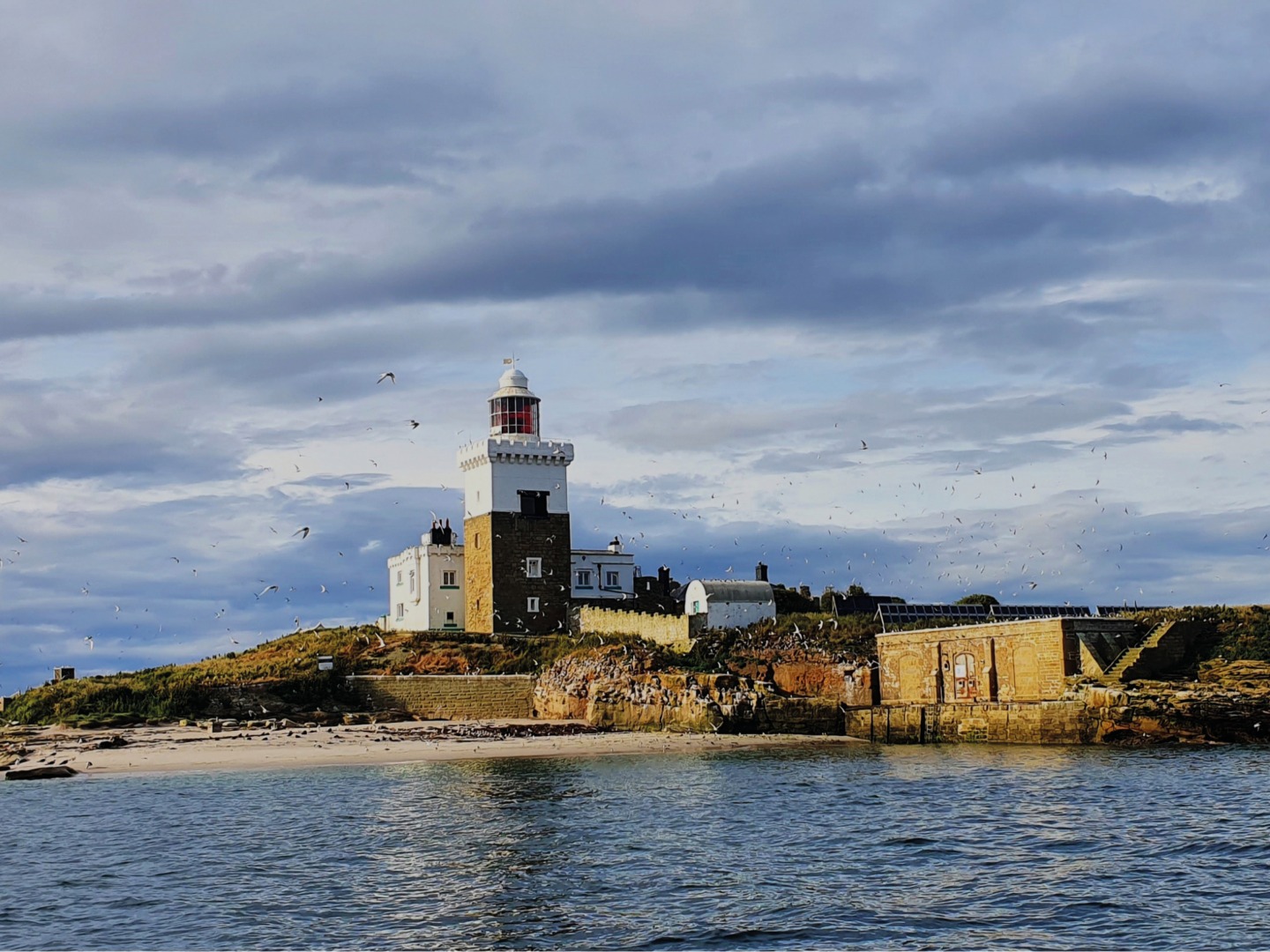
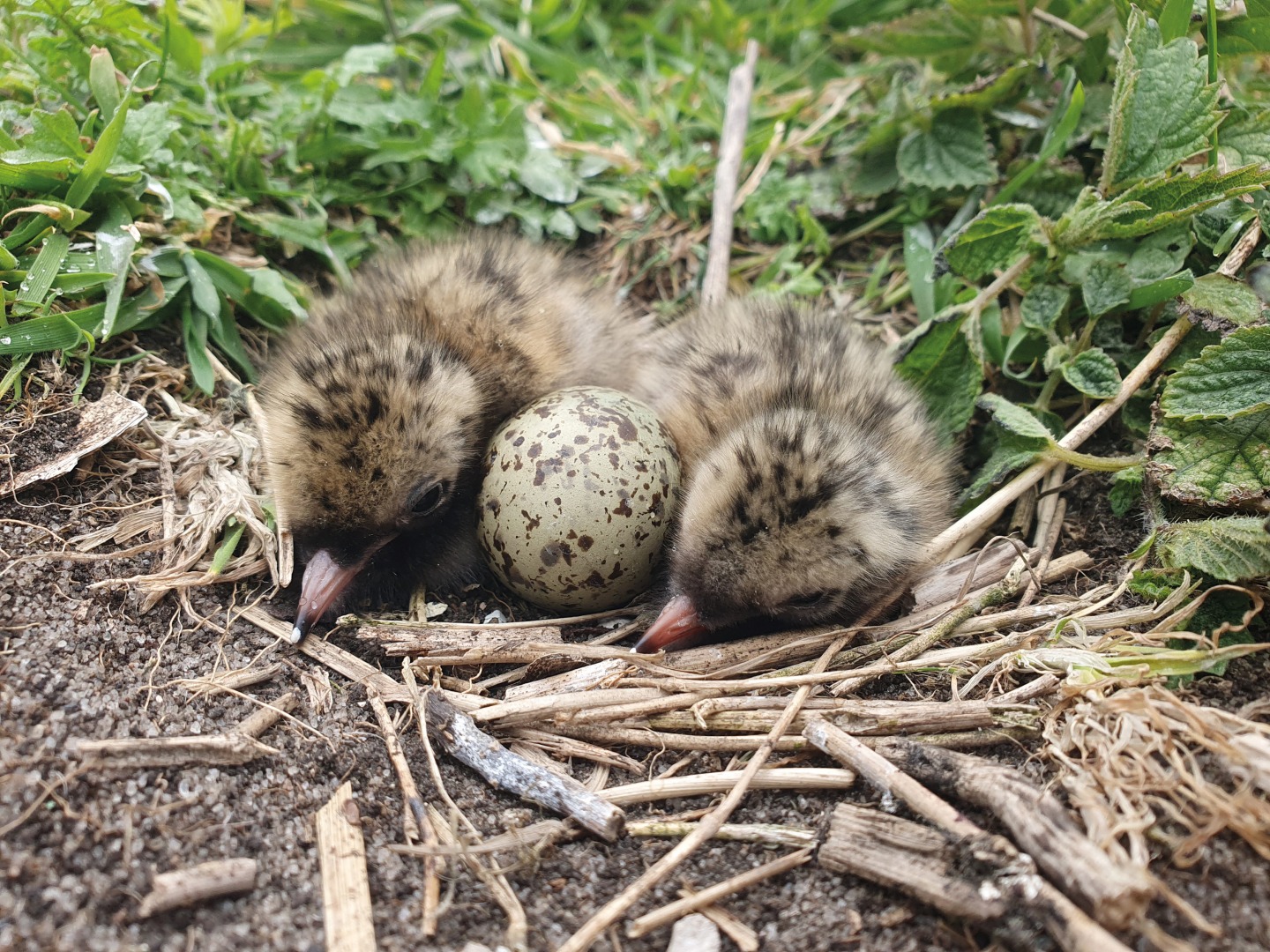
‘Our water comes from an underground tank that is filled by a rainwater butt so we are not wholly reliant on the rain, and we do bring our drinking water over in refillable containers from the mainland. The power for the island comes from solar panels and we have been recently updating this system. There is no central heating in the buildings, but every room has a wood burner. One of the benefits of the old thick walls is that it doesn’t take too long to warm up buildings and make it feel toasty and cosy. We have no shops out here so anything that you need for your time on the island has to be brought out with you which does mean that you become very good at adapting if you have forgotten anything. But hopefully someone will lend you what you need – one of the things about island life is that everyone helps everyone.’ Rebekah’s must-have snack? ‘A bag of chocolate!’
Unwinding in the quieter moments isn’t difficult when surrounded by so much natural beauty. ‘There isn’t too much down-time out here – as the warden it is my responsibility to manage the island and keep it running. But we take turns cooking dinner for everyone out here and that gives us a chance to chat and play board games with the others on the island. As a night owl, I can often be found down in the hide on the jetty with a cup of tea, watching the sunset.’
Rebekah’s favourite memory from her time spent on the island is another tranquil moment. ‘There are many things that I love about the island, but one of my favourite memories is sitting down on the jetty on a lovely sunny July evening, surround by hundreds of sandwich and roseate tern fledging birds, some of them trying to learn how to fish for themselves just off the jetty – but instead of gracefully pecking sand eels out of the water they end up belly flopping it instead,’ she laughs.
‘The others are just standing around on the jetty and the rocks waiting for their parents to bring them food. I love these moments where I can just sit still and watch the birds going about their day – it feels like a privilege to be able to be part of their world without disturbing them, watching their natural behaviour. It’s in these moments that you can truly appreciate these species, from the subtle shift of the tail as they glide down to the ground to the one chick that will try and start fights with all its neighbours. It is a memory that reminds me of why all the hard work and effort that I put into the island is worth it, that the work that I and my team and our wonderful volunteers do here provides the necessary habitat for the seabirds of RSPB Coquet Island to thrive.’







